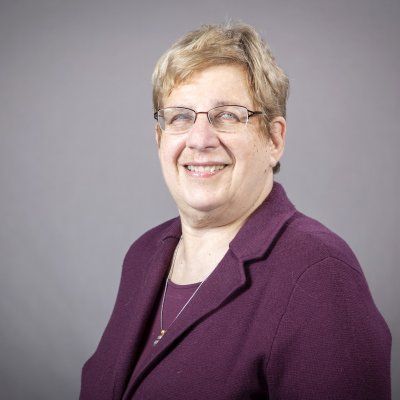LDI News
Access is Crital

LIWP Leader Spotlight
Dolores Cimini, PhD
New York State licensed psychologist and director of the Center for Behavioral Health Promotion and Applied Research at the University at Albany, State University of New York
What made you decide to accept the invitation to serve on the LIWP Advisory Committee?
I have always believed in the mission of the LIWP and when I participated in Cohort 5, I learned a great deal. It has made a significant difference in my own career development, and I believe in paying it forward to other women. When I received the opportunity to consider this role, I accepted it immediately.
Can you speak a bit about the importance of Equity, Diversity and Inclusion in leadership?
Yes; equity, diversity, and inclusion are critical to keep in mind for all leaders, particularly for women. It has been very challenging when we look at issues in society, both past and more recent, with regard to achieving equity, particularly for women and populations that have been historically marginalized. It's really critical, in my view, to do whatever we can to help place everyone, particularly those who have been historically marginalized, on an equal playing field. You know, that means that what those in leadership need to do is to take any opportunity we have to open doors for other women and other underrepresented people whose identities have been historically marginalized. I would also add, with regard to equity, diversity, and inclusion, “access.” Because, when we talk about equity, we also need to consider access. Do individuals and society have equal access to the benefits and opportunities that exist? As a person with a disability myself, access is very critical in leveling the playing field. I would ultimately recommend, in addition to equity, diversity, and inclusion, to add access as a fourth element.
How have your own intersectionalities affected your experiences in leadership roles?
So, as I mentioned, I'm a person with a visual disability. When I trained in graduate school back in the 1980s, the environment for women with disabilities was very different than it is right now. I was not encouraged to pursue advanced studies and the technology, in terms of accommodations around computers and other technologies to help do research, was not as advanced, so there were a lot of challenges. As a person with a disability, I had to do a lot early in my career to catch up and keep up with those who may not have been challenged with disabilities. As years have passed, technology has improved. There has been more access to opportunities for people with disabilities as a function of new laws and new doors being opened. We see more women with disabilities in leadership positions, and even though a lot of work needs to be done, it's really important to know that there has been some progress. When I think of my own intersectionality as a woman, and as someone with a disability, it's really a dual set of issues that I face, and I have committed to doing whatever I can to do in small ways to help advance the opportunities for women with disabilities. In fact, I have been acknowledged by the White House and President Obama for the work that I've done in mentoring young women with disabilities. I am still doing that, right now, and I plan to continue to engage in that work for the rest of my career.
What would you say is the most important thing you’ve learned about yourself as a leader?
The most important thing that I've learned about myself as a leader is that it's important for me when I face new opportunities and new potential challenges, to just jump in there and not be afraid. Sometimes, when we receive new opportunities or experience new challenges there's an avoidance conflict approach that happens, at least for me, and it's really easy to potentially decide not to move forward, but it's at those very times when most challenges exist that it's really important to step forward and to try new opportunities. I've learned that after I have taken those big steps forward, it has not only benefited my own career development but I've also been placed into spaces in which I could help and mentor and help others move forward.
What is the best piece of leadership advice you’ve ever received?
The best piece of leadership advice that I have ever received is to persist. Sometimes leadership is very difficult, it's very complicated, it's very challenging. We can face a lot of resistance from those around us to what we want to accomplish, so it's important first and foremost to persist. To work with others creatively to address any potential challenges that may be in the way and to address any potential barriers that we encounter. We need to approach leadership not only with persistence but with some courage. The courage to move forward, the courage to make changes, and the courage to fail to make mistakes. We all make mistakes as we lead, and so what I say is “we need to fail forward.” Okay? So as we move forward, we fail, we learn, and then we get up and move on and always remember that we, in our lives and in leadership have choices and it's through our choices that we pave the way not only for our own futures but for that of other women and with our voices that we can actually realize that change that we wish to make in our immediate environments and in broader society.”
What advice would you give to our LIWP Leaders and Affiliates?
During our journeys and leadership, do not be afraid to fail forward. As we engage in new opportunities, we may face new barriers as well, and we need to. We need to work with our allies, we need to work with our fellow women leaders to help address those barriers. Begin small and figure out new and creative ways to move forward, to move beyond those barriers, and to help all of us individually and collectively make progress.
From LeadHERship, Vol. 6 (2022)
